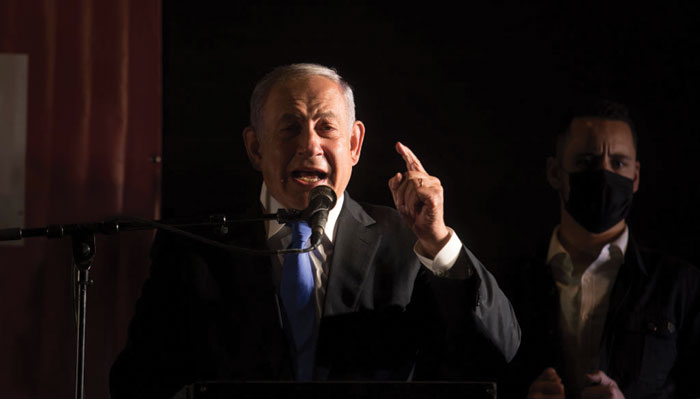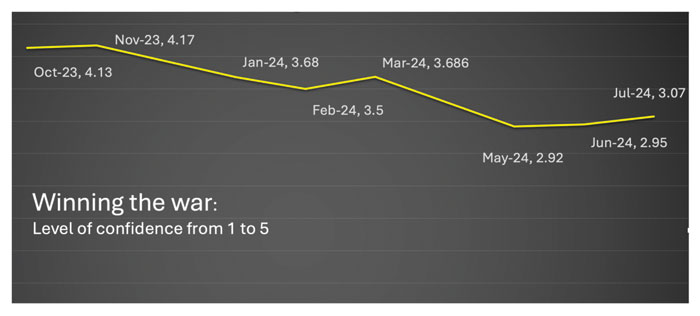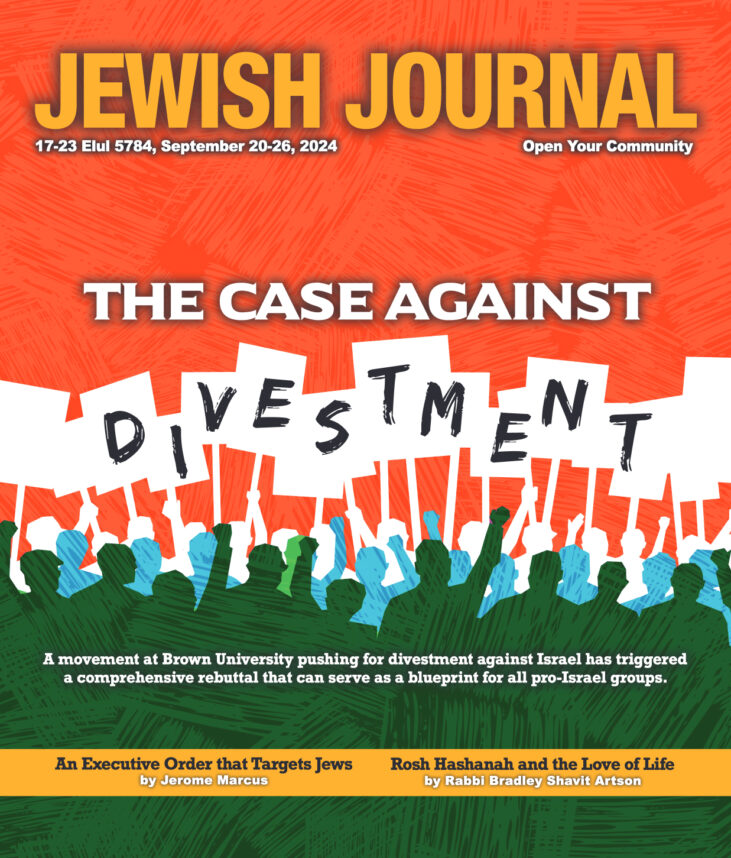
Here is a rule of thumb for all incitement-related matters: Speaking against incitement, does not reduce incitement.
A simple rule. You are welcome to test it. Incitement – always difficult to define – is the product of a certain social situation. To prevent incitement this social situation needs to be changed. Nothing else works. Neither President Biden’s call to “lower the temperature in our politics,” nor PM Netanyahu’s self-portrayal as a helpless victim of incitement could do the trick.
Last Sunday, a long government meeting in Israel was wasted on complains about “incitement against the prime minister.” Cabinet Secretary Yossi Fuchs screened a video clip showing critics of the PM using harsh words against him. Then a two-hour discussion was dedicated to finger-pointing. The justice system isn’t doing its job; the opposition is reckless; the media is biased, and so on and so forth.
This was a classic example of how the discourse of incitement is itself a form of, well, if not incitement than at least an attempt to delegitimize a political opponent.
When Netanyahu says that “incitement was normalized” in Israel, he’s talking about his opponents. Incitement by his supporters he tends to ignore. And yes, the use of harsh, often dangerous language among Netanyahu’s opponents had indeed become more common. It became more common in general, a result of Israel’s high social and political tension. Is that a good reason to have a cabinet meeting dedicated to the problem?
Let’s examine this government meeting where the issue of incitement against the PM was raised. Three questions can be asked about it:
1. The question of timing: Was the date of the discussion, the morning after the attempt at former President Trump’s life, an innocent coincidence — or a cunning use of an opportunity to score political points (“they tried to kill him, I might be next …”)?
2. The forum question: Is the Israeli cabinet meeting the appropriate place for discussing incitement against, well, Israeli cabinet ministers?
3. The question of essence: Is there indeed a dangerous incitement against the Prime Minister, and other members of the cabinet, that should be dealt with?
Note the question that was not asked: Do the ministers and the PM also incite against others? It was not included because it does not belong here. The argument “but you are also inciting” is not a convincing argument. If the PM were to say “I am allowed to incite against my opponents because they incite against me” we would not accept it. Therefore, we should not accept a statement such as “the PM incite against us and therefore we are allowed to incite against him.”
But what about the questions that we did ask?
Let’s start by answering the third question with a yes — there is incitement against the PM, and perhaps, less frequently, also against some of the ministers. There should be no incitement against them. And incitement that may lead to violent action ought to be dealt with by law enforcement authorities.
A note of caution: The authorities must clearly differentiate between dangerous incitement and legitimate, if harsh, criticism. But we must not ignore the fact that public discourse in Israel, including statements against the PM, has become very blunt, sometimes containing more than a whiff of violence. And we must not ignore the possibility that such discourse will lead to perilous actions. As I already said, such discourse is never neutralized by complaints about incitement. It can be reduced by a reduction of the social tension. So yes, the government can play a role in this matter, but not the role it was playing last Sunday.
Let’s move on to the second question: Imagine a group of, let’s say, the leaders of the opposition, who sit and talk about how terrible the incitement against the leaders of the opposition is. Would this be a trustworthy forum to determine whether there is such an incitement? We must be honest here: The tendency of people — and politicians pretend to be people — is to interpret any harsh statement against them as dangerous incitement. That’s why such matters are handled by law enforcement agencies. Of course, the government argues that these agencies aren’t doing their job, which might or might not be true. Still, the decision on the question “is there incitement” cannot be left to those who see themselves as the victims of incitement. Because he has already decided.
A deranged American tried to kill Donald Trump, and somehow, as interpreted by Israeli cabinet ministers, it became yet another event centered on Netanyahu.
Now to the first question – the timing. This is an easy one. The cabinet didn’t have a policy meeting, it put up a show. A cynical abuse of a tragic moment of opportunity. It was using a dramatic event in America to score a point in Israel. What’s the gain? Attacking political opponents, denying them legitimacy, presenting the prime minister and the government as a victim, denying responsibility for the social and political situation, blaming others for the social and political situation. The government meeting, to put it bluntly, without moving beyond the pale of incitement, engaged in a show of self-pity and narcissism. A deranged American tried to kill Donald Trump – at the time of writing, for an unknown reason – and somehow, as interpreted by Israeli cabinet ministers, it became yet another event centered on Netanyahu.
Something I wrote in Hebrew
If and when the election in Israel takes place, will former PM Naftali Bennett be the game changer?
Currently, according to the polls, Bennett and Co. are rearranging the cards mainly on the left of Likud’s deck. They make Gantz a candidate who has a smaller chance of forming the government, and Lapid a hopeless PM candidate. And they open the field to a great many possibilities of coalitions. But they scratch only a few voters from the camp that still supports Likud and the right. Of course, in close elections, a shift of three seats, if it occurs can be a make-or-break shift. But the big shift in projected seats, the really decisive shift — assuming the voters will remain in their current position until election day — is a shift that happened before Bennett entered the race and he had nothing to do with.
A week’s numbers
Will Israel win the war? Israelis’ confidence is declining.

A reader’s response:
Dorie Kaplan asks: “With everything that’s going on is Bibi still coming to speak in the U.S.?” Answer: Yes, and very soon, brace yourself.
Shmuel Rosner is senior political editor. For more analysis of Israeli and international politics, visit Rosner’s Domain at jewishjournal.com/rosnersdomain.






















 More news and opinions than at a Shabbat dinner, right in your inbox.
More news and opinions than at a Shabbat dinner, right in your inbox.